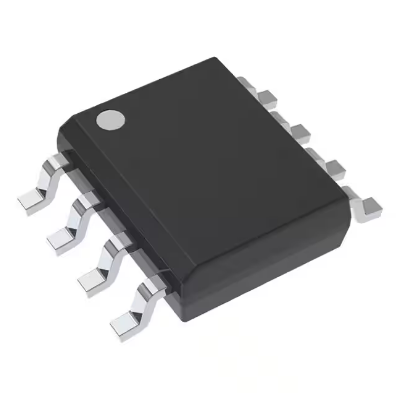In the rapidly evolving world of electronics, high-performance components are crucial for enabling cutting-edge technologies. Among these, High Speed Operational Amplifiers (HSOAs) have emerged as indispensable devices, particularly in applications requiring high speed and precision. These amplifiers are not just a mere enhancement over traditional amplifiers; they represent a significant leap forward, offering unparalleled performance in a wide range of industries.

What Are High Speed Operational Amplifiers?
High Speed Operational Amplifiers, often abbreviated as HSOAs, are specialized electronic devices designed to amplify signals with exceptional speed and accuracy. Unlike conventional amplifiers, HSOAs possess a high gain-bandwidth product (GBP), allowing them to operate efficiently in high-frequency ranges. This makes them ideal for processing high-speed signals such as audio and video, while maintaining high amplification precision.
Key Features and Advantages
High Gain-Bandwidth Product (GBP)
One of the most defining characteristics of HSOAs is their high GBP. This metric determines the maximum frequency at which an amplifier can amplify a signal with a specific gain without significant degradation. For instance, an amplifier with a GBP of 100 MHz can amplify signals up to 100 MHz while maintaining a unity gain (gain of 1). The higher the GBP, the better the amplifier performs at higher frequencies.
Fast Settling Time and Low Distortion
HSOAs exhibit fast settling times and low distortion rates, which are essential for applications requiring rapid signal processing. The settling time refers to the duration it takes for the output of an amplifier to reach and stabilize within a specified error band after a step input. Low distortion ensures that the amplified signal retains its original shape and characteristics, minimizing unwanted harmonics and noise.
High Power Supply Voltage Stability
Another remarkable feature of HSOAs is their ability to maintain high performance across a wide range of power supply voltages. Whether operating at low or high supply voltages, these amplifiers deliver consistent, high-quality amplification. This makes them ideal for industrial automation control systems, where they can function reliably in environments with high voltage, high temperature, and high noise levels.
Low Input Noise and Offset Voltage
The input noise and offset voltage of an amplifier can significantly affect the accuracy of the amplified signal. HSOAs are designed with extremely low input noise and offset voltage, ensuring high precision during signal amplification. This is particularly critical in applications such as sensor measurements, medical equipment, and audio/video processing, where accurate signal amplification is paramount.
Applications Across Industries
Communications
In the communications industry, HSOAs are widely used in signal conditioning circuits, cable drivers, and ADC pre-amplifiers. They enable high-speed data transmission and reception, ensuring clear and uninterrupted communication. With the increasing demand for faster internet speeds and more reliable communication networks, HSOAs are playing a pivotal role in enabling next-generation technologies like 5G and beyond.
Video Processing
The video industry benefits significantly from HSOAs due to their ability to handle high-frequency signals with minimal distortion. They are essential components in video amplifiers and active filters, enabling the processing and transmission of high-definition video signals. From home entertainment systems to professional broadcast equipment, HSOAs contribute to the delivery of crisp, clear visual content.
Medical Equipment
In the medical field, precision is everything. HSOAs are found in various medical devices, including ECG machines, ultrasound scanners, and MRI systems. Their low input noise and offset voltage ensure accurate signal amplification, which is crucial for diagnosing and treating patients. The reliability and precision of HSOAs make them indispensable in the healthcare industry.
Industrial Automation
Industrial automation systems often operate in harsh environments with high voltage, high temperature, and high noise levels. HSOAs are designed to withstand these conditions while delivering consistent, high-quality amplification. They are used in control systems, sensors, and actuators, enabling efficient and reliable automation processes.
Innovations and Future Trends
The development of HSOAs has seen rapid progress over the years, driven by advancements in IC processes and innovative circuit topologies. Manufacturers are continuously pushing the boundaries of performance, aiming to achieve higher bandwidths while consuming less power. This is particularly important in portable and battery-operated communication equipment, where energy efficiency is a critical factor.
One of the latest innovations in HSOA technology is the use of complementary bipolar (CB) processes, such as Analog Devices' XFCB process. This high-speed, electrically isolated process enables amplifiers to achieve new levels of cost-effective performance at astonishingly low quiescent currents. The XFCB process, coupled with innovative circuit topologies, allows amplifiers to achieve bandwidths of up to 2-4 GHz while maintaining low distortion and noise.
Conclusion
High Speed Operational Amplifiers are transformative devices that are revolutionizing the electronics industry. Their ability to handle high-frequency signals with minimal distortion and high precision makes them indispensable in a wide range of applications, from communications and video processing to medical equipment and industrial automation. As technology continues to advance, the role of HSOAs will become even more critical, enabling the development of new and innovative solutions that push the boundaries of what is possible.
In the future, we can expect to see even more impressive advancements in HSOA technology, driving the development of new applications in areas such as renewable energy, smart homes, and robotics. The journey of HSOAs is just beginning, and as we continue to explore the limits of performance, these amplifiers will continue to shape the future of electronics.
Media Contact
Company Name: Shenzhen SERDIA Electronic Technology Co., Ltd.
Email: Send Email
Phone: +86 13691825231
Country: China
Website: https://www.serdia-chip.com/